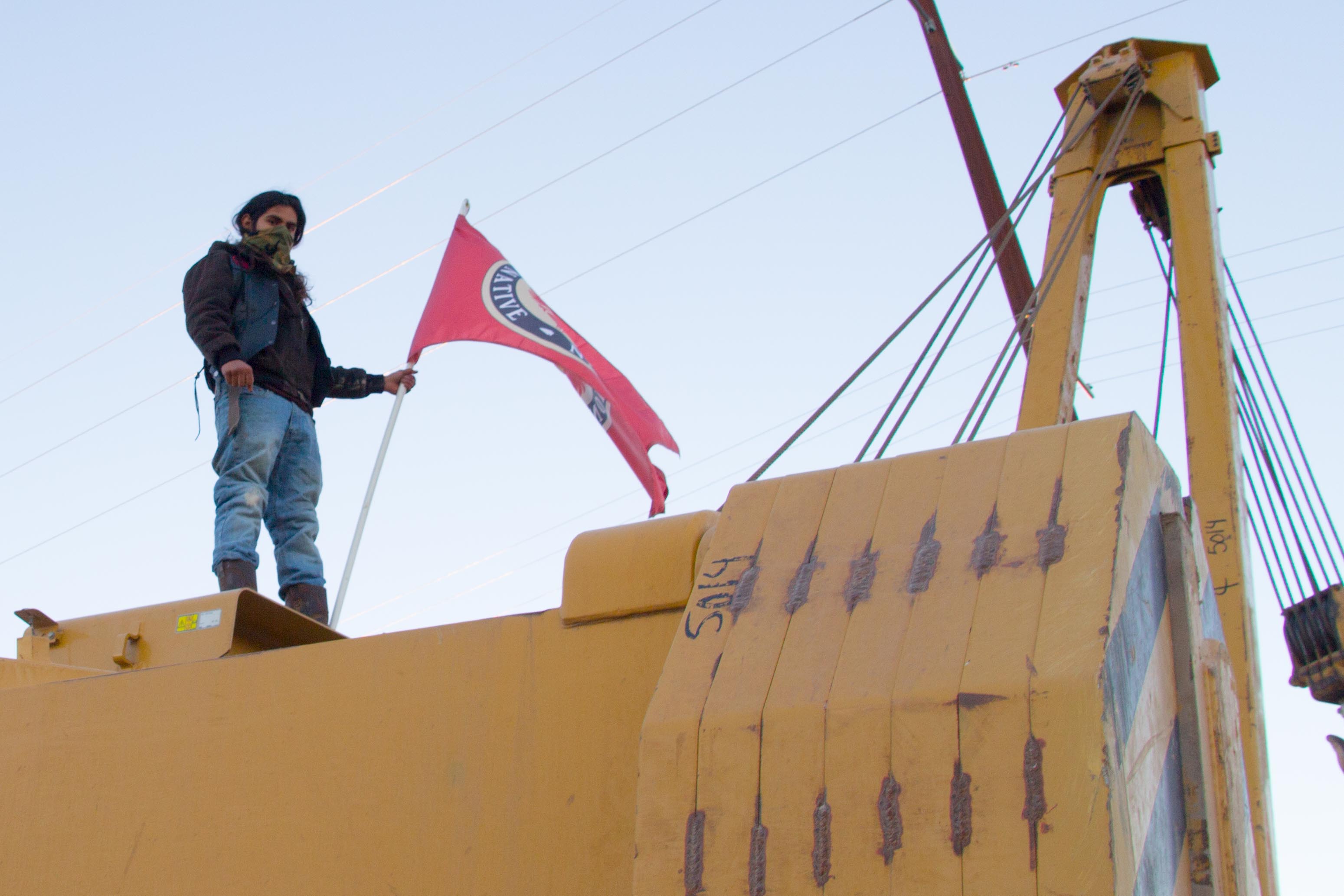Greg Harman
Veterans of Standing Rock have begun to travel to Far West Texas to join ongoing efforts there to stop Energy Transfer Partners’ Trans-Pecos Pipeline. Intended as landing spot for pipeline resisters, Camp Deer Trail in Alpine, Texas, has been hosting several of the self-described water protectors.
“I went to Standing Rock to stand with the veterans, went home to Pueblo (Colorado), could not acclimate myself back into my home so now I’m in Alpine, Texas, and I will continue until this is done or I am done,” said Miya Cuwe, who identifies as of Blackfoot/Cherokee and Irish descent.
Virginia Brotherton first opened her property to water protectors months ago to help facilitate actions in opposition to the pipelines. She echo many interviewed about their resistance to the Trans-Pecos and Comanche Trails pipelines by saying that the movement in West Texas is about more than one or two pipelines but is about advocating for a cultural and political shift away from climate-destabilizing fossil fuels and a return to values that put care for the earth at the center human behavior.
“I feel like if we don’t do something as a people then Mother Earth is going to revolt herself,” Brotherton said.
The Trans-Pecos Pipeline, a 42-inch, high-pressure natural-gas pipeline owned by Dallas-based Energy Transfer Partners, is scheduled to transport 1.4 billion cubic feet per day from the Fort Stockton area to the Rio Grande. From there it is expected to sink beneath the international boundary to tie in to the rapidly expanding Mexican natural-gas infrastructure.
The expansion of natgas lines from West Texas will inevitably help facilitate a fracking boom in West Texas, representing a corresponding boom in climate-damaging methane emissions.

The two pipelines have been signaled out also due to the company constructing them: ETP is the primary force behind the Dakota Access Pipeline being resisted in North Dakota by the Standing Rock Sioux and native and non-native allies from around the world.
Although Trail Deer has served as a sort of weigh station for interested water protectors checking out area resistance activity, Louis Moncivias said he was committed to helping transition it into a “mobile” camp after it closes later this month.
“For me, speaking for myself, I want people to know that my responsibility is to educate people, try to bring people together, try to unite in the camp, or with other camps, as well,” he said.
Central Texas resident Juliana Withers, who was surveying the scene last weekend, said she is hoping that indigenous peoples remain “front and center” is the conversation about the pipelines. “We haven’t been silent, we just haven’t been recognized for a very long time,” she said.

The Two Rivers Camp established by the Society of Native Nations in South Presidio County has begun to serve as a direct-action camp, site of the mobilization that shut down construction at one construction location for a couple hours last weekend. (See video here.)
With attendance by regional indigenous elders, that camp’s sacred fire was lit on Sunday.
Meanwhile, a third camp, Camp Toyahvale, is by contrast dedicated to protecting the sacred Balmorhea Springs as fracking heats up in the area. Its primary approach will be through scientific water-quality monitoring, cultural education, and indigenous teaching.
The Camp’s mission statement reads:
We, the descendants of the Original People of this land, gather around the Sacred Fire at Camp Toyahvale to honor our heritage and protect Mother Earth and her life giving waters.
We devote ourselves to defend our sacred sites and through our ancestral teachings, share native wisdom to help heal our society’s broken connection to the Earth.
We welcome all like-minded people wanting to protect and preserve the Earth and her sacred waters in order to uphold our responsibilites to future generations.”
Toyahvale’s sacred fire is to be lit this coming weekend.








